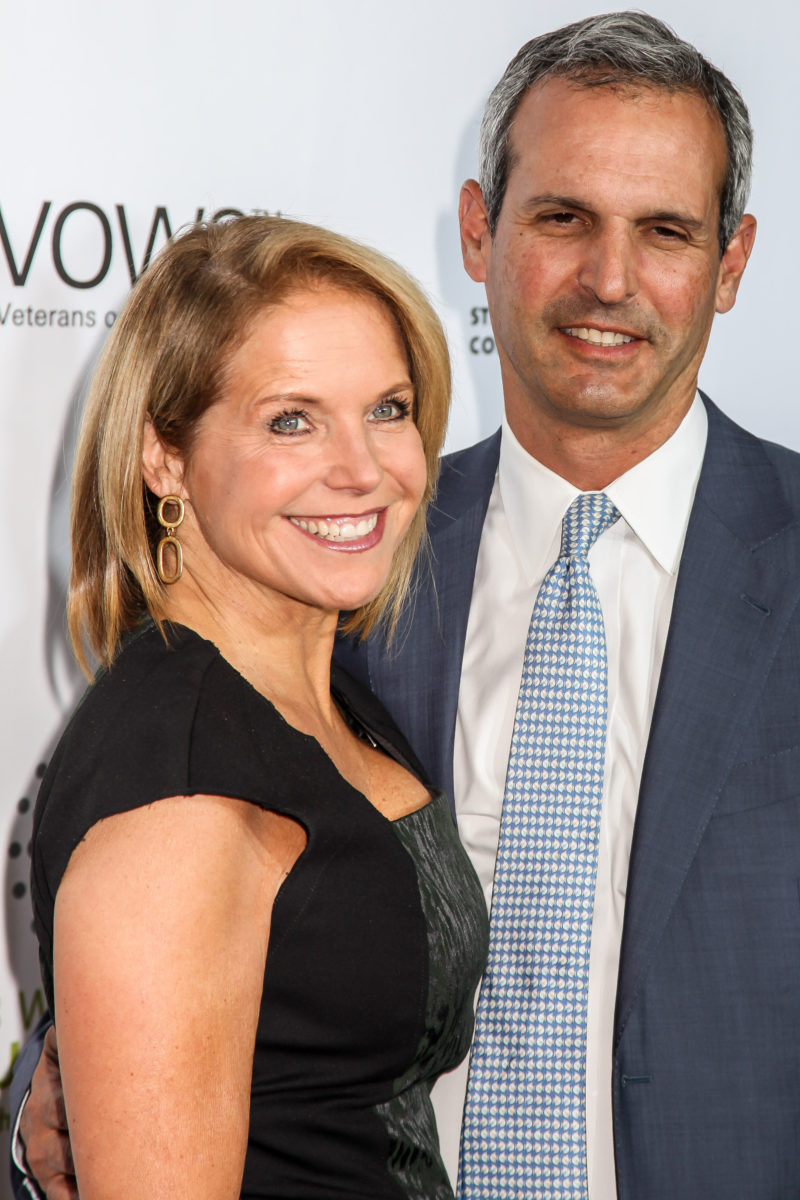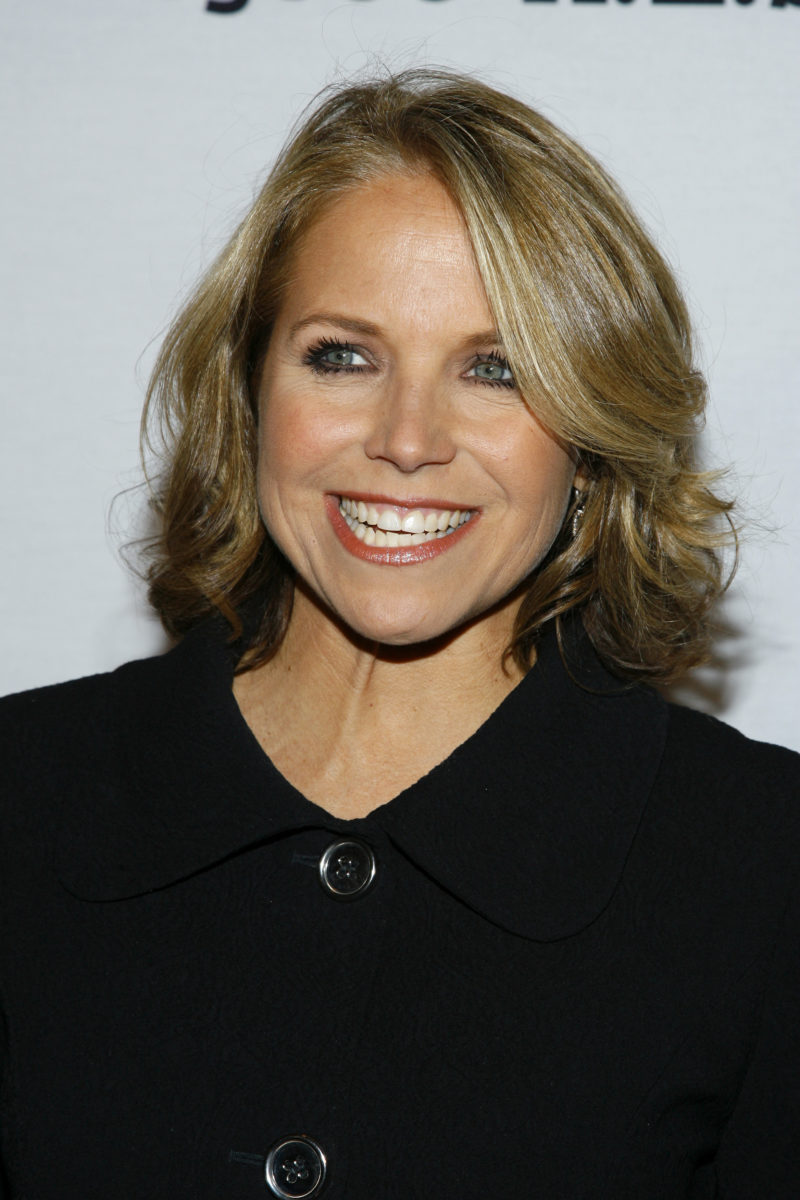On the same day legendary news anchor, Katie Couric, celebrated her 8th wedding anniversary, she also received life-altering news. She, like so many other women in the world, has been diagnosed with breast cancer.
Although three months have passed, Couric made the decision to keep the start of her battle private. Now, she is sharing her story as the month of October quickly approaches.
Katie Couric Shares Heartbreaking Cancer Diagnosis—She Hopes Her Story Encourages More Women to Get Tested Regularly
For those unaware, October is breast cancer awareness month. According to the American Cancer Society, it’s believed that an estimated 287,850 new cases of breast cancer will be diagnosed in the United States in 2022. And about 43,250 women will die from breast cancer.
In fact, breast cancer has become so common that 1 in 8 women in the United States will be diagnosed with breast cancer in their lifetime. As a result, like Couric, someone close to you has probably climbed the same mountain Couric is climbing right now.
In a statement shared on her official website, Couric wrote about the moment she had her mammogram. She admitted that after her first husband passed away from colon cancer in 1998, she become almost neurotic about her own health.
RELATED: Kelly Rizzo Finds Solace After Bob Saget’s Death In Katie Couric And Amanda Kloots

So when her OBGYN told her she needed a mammogram earlier this year she was shocked. “That’s crazy, I just got one,” she told her doctor.
But in reality, two years had passed since she received her last mammogram. And a lot can happen in two years. “OK,” I told her. “I’ll make an appointment ASAP.”
On June 2020, Couric arrived for her mammogram. She actually had the intention of filming the process for a new segment she was working on, much like the one she did for Today in 2000, when she filmed the process of getting a colonoscopy.
“I handed my phone to a technician and asked if she could film me (in a very PG kind of way) as one by one, my breasts were squished between two plastic trays in a state-of-the-art 3D mammogram machine. Compared to a standard mammogram, the 3D model gives clinicians a more complete view of the breast tissue. Ever the ham, I was cracking jokes and making faces to the camera as I explained what was going on.”
It was then that she was given a breast ultrasound, on account of Couric’s breasts being dense. When the doctor came back into the room, she asked Couric to stop filming.

“There’s something here that I’d like to check out. It could be scar tissue,” the doctor told Couric, on account that she had a breast reduction in 2016, “but I would feel more comfortable if I did a biopsy.”
The next day, Couric received the text. “Please call me in the office to discuss biopsy results. I tried calling you on your cell. Your mailbox is full.”
When Couric called back, her doctor gave her the news. “Your biopsy came back. It’s cancer. You’re going to be fine but we need to make a plan.”
Couric wrote that she “felt sick and the room started to spin. I was in the middle of an open office, so I walked to a corner and spoke quietly, my mouth unable to keep up with the questions swirling in my head.”
Then she began to think about all the people in her life she watched lose their battle to cancer—her husband, her sister, her mother-in-law. But she also recalled the people she knew who managed to beat the horrific disease—her mother, her father, and her current husband.
“Given my family’s history of cancer, why would I be spared,” Couric questioned. “My reaction went from ‘Why me?’ to ‘Why not me?’”
The only real difference is that while Couric was well versed in colon and pancreatic cancers, no one in her family had ever been diagnosed with breast cancer. Couric was told, “your tumor is hormone receptor-positive, Her2neu-negative, and highly treatable, particularly if it was detected early.”
On July 14, Couric had a lumpectomy. Couric was later told that she had stage 1A breast cancer and that she wouldn’t need chemotherapy, however, she would need radiation.
September 27 was her last day of radiation and Couric admitted that she “feels fine.” But now she wants her story to be a reminder to all women of a certain age to remember to get yearly screenings.
“I was six months late this time. I shudder to think what might have happened if I had put it off longer. But just as importantly, please find out if you need additional screening,” she wrote. “Forty-five percent of women in this country (yes, nearly half) have dense breasts, which can make it difficult for mammograms alone to detect abnormalities.”
Mamas Uncut is THE online place for moms. We cover the latest about motherhood, parenting, and entertainment as well – all with a mom-focused twist. So if you're looking for parenting advice from real parents, we have plenty of it, all for moms from moms, and also experts. Because, at the end of the day, our mission is focused solely on empowering moms and moms-to-be with the knowledge and answers they’re looking for in one safe space.
